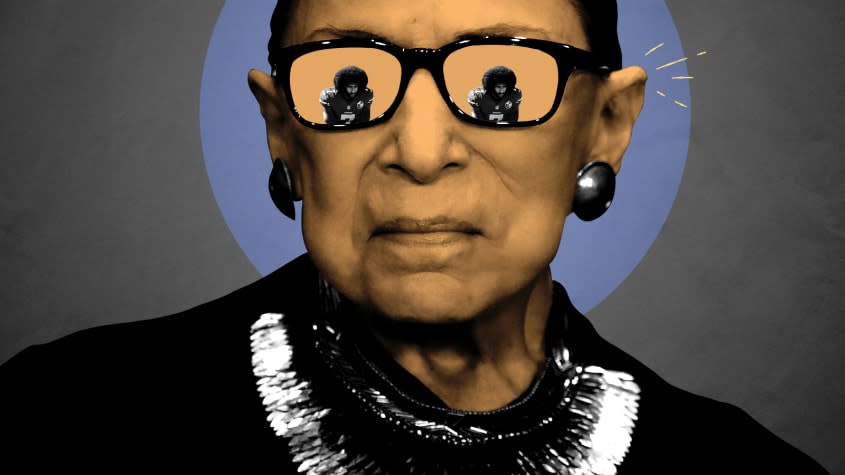How Katie Couric's RBG interview contributes to America's misinformation problem

If you want to get to the heart of America's misinformation problem, let's consider Katie Couric.
In her new memoir, the former Today and CBS Evening News anchor reveals she edited a 2016 interview in which Supreme Court Justice Ruth Bader Ginsburg criticized athletes who do not stand for the national anthem. The protests are an act of "contempt for a government that has made it possible for their parents and grandparents to live a decent life," Ginsburg said.
That was a remarkable, provocative statement. But Couric left the quote out of her final piece, guided by politics — she was "a big fan" of Ginsburg and wanted to protect her from a likely backlash — as well as paternalism: She believed the 83-year-old justice was "elderly and probably didn't fully understand the question." So Ginsburg's comments went down the memory hole for five years, until they became fodder for Couric's book.
Couric's revelation might add some momentum to the nascent reappraisal of Ginsburg, who spent her final years on the court celebrated on late night talk shows, Saturday Night Live, and in the movies as a progressive feminist icon. Her refusal to retire from the Supreme Court — perhaps encouraged by that adoration — ultimately cemented the court's rightward drift, putting abortion rights and her legal legacy in danger. It also appears that editing RBG is a trend: The ACLU recently altered a Ginsburg quote about child-bearing to make it more gender-neutral.
The bigger effect of Couric's admission, though, might be a new hindrance in battling misinformation. Couric chose to obscure a sitting justice's views on a newsworthy topic — the journalistic equivalent of a lie by omission. Revelations like this help seed the ground for mistrust in the newspapers and TV news outlets responsible for delivering true information to the rest of us. Many Americans have been primed to believe the media is lying to them, either because journalists lean to the left or because they're just too clubby with the people and institutions they cover. ("The big question is often not what you see they're doing, but what they're hiding from you," right-wing journalist Mark Hemingway promptly wrote of Couric's choice.)
Often that mistrust is cynically cultivated by ideological grifters like former President Donald Trump who want to replace reality with lies. But sometimes, as here, the damage is self-inflicted.
You may also like
Madonna makes Jimmy Fallon sweat, remove coat in 'disturbed' interview
Biden wants to snoop in nearly every American's bank account

 money
money 